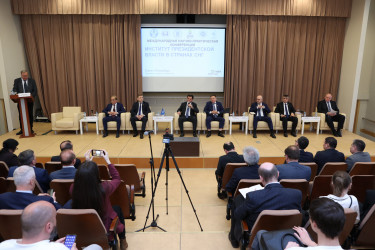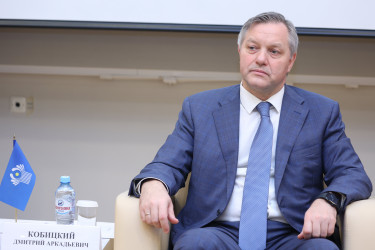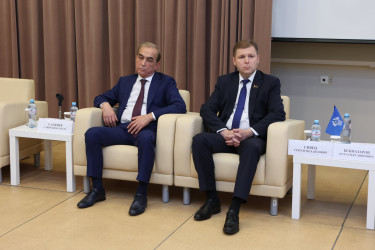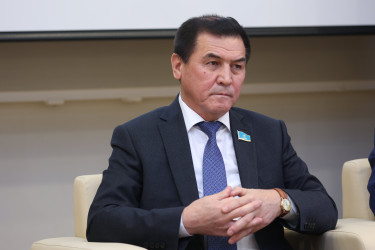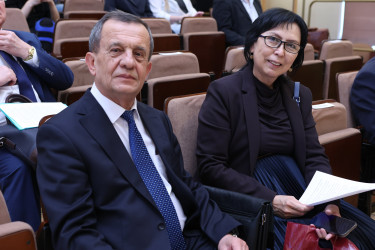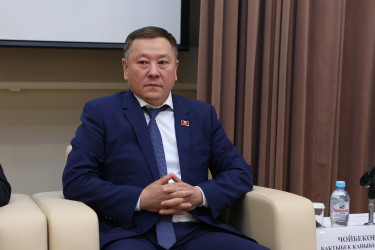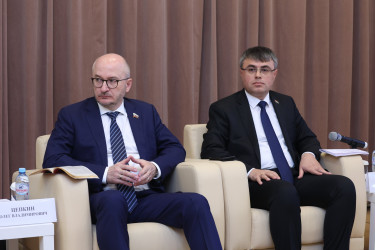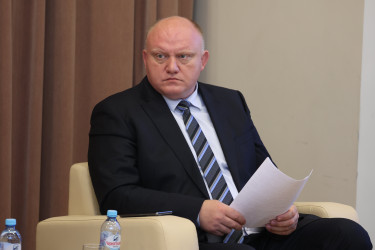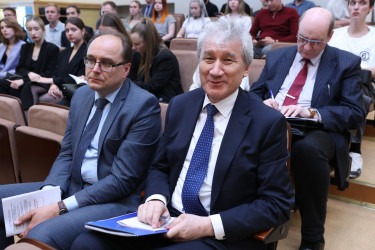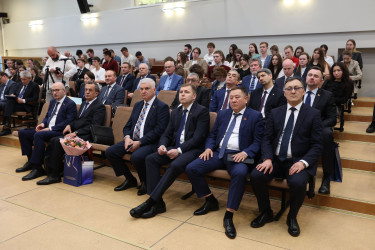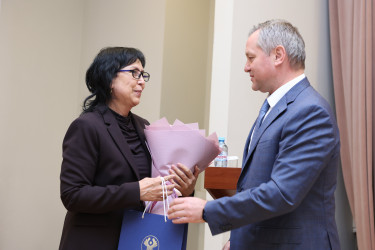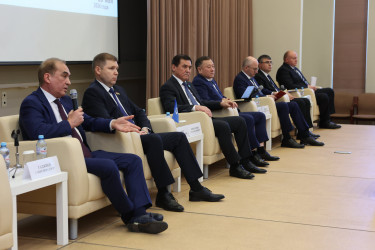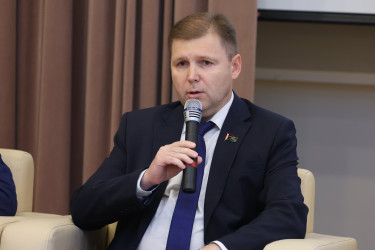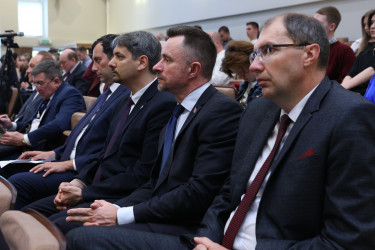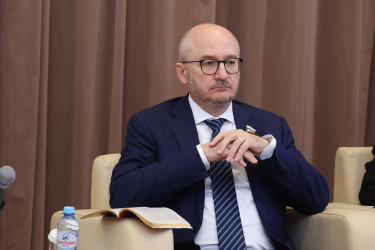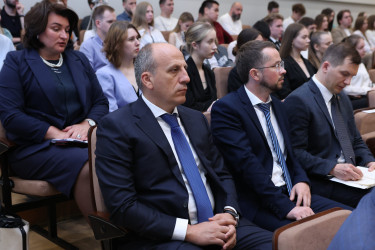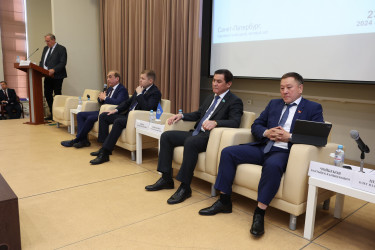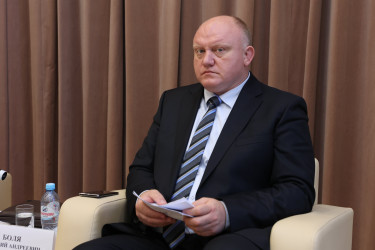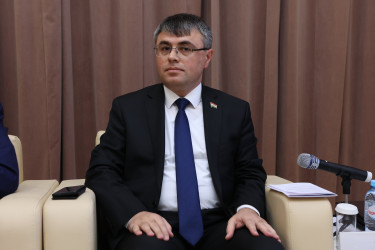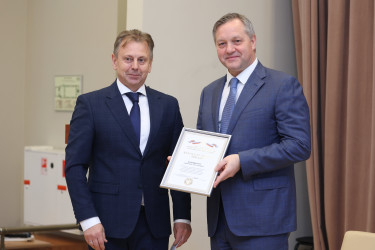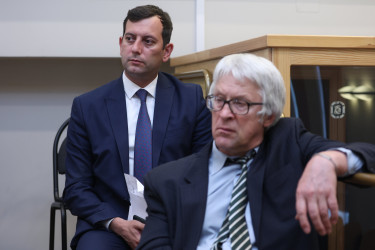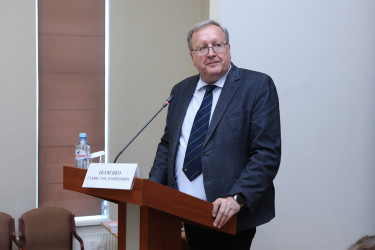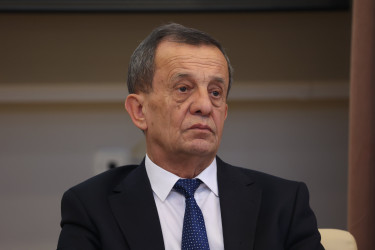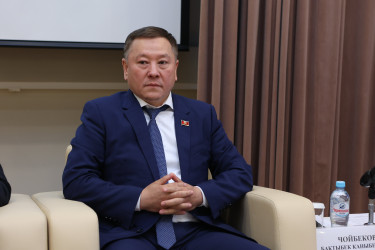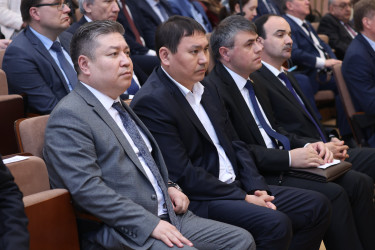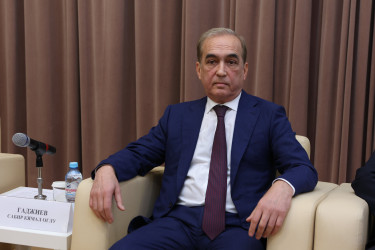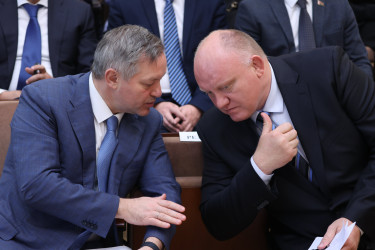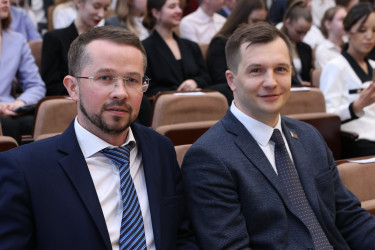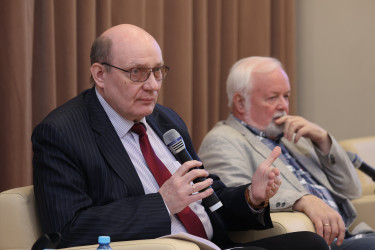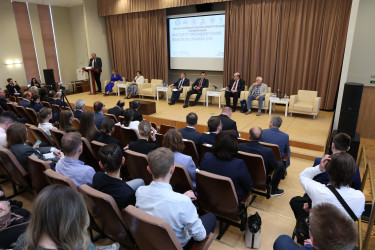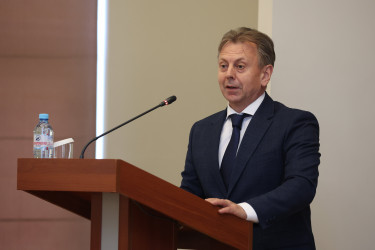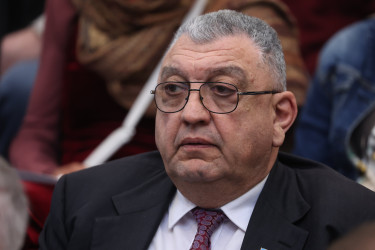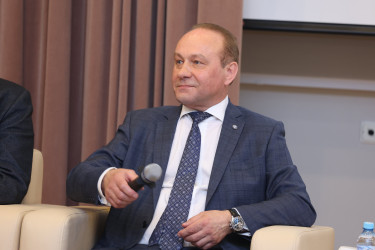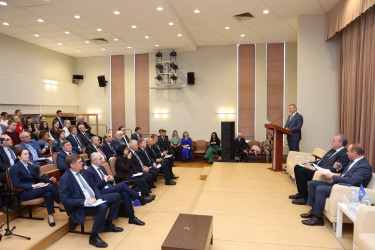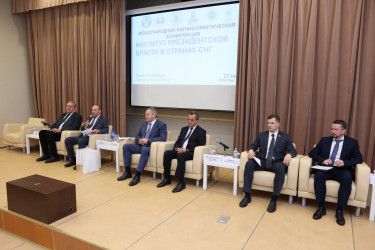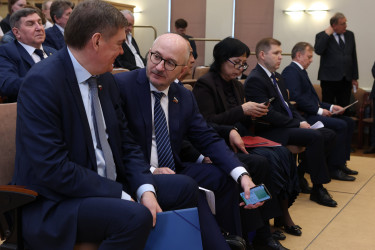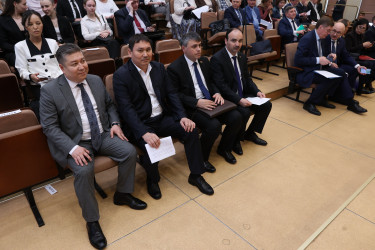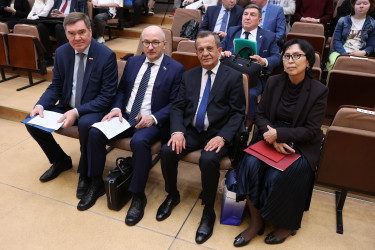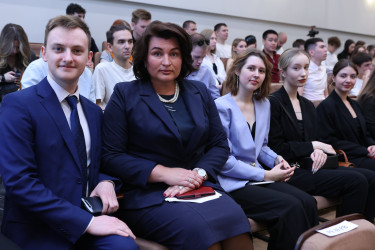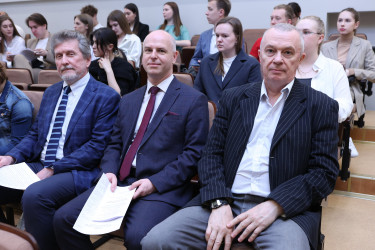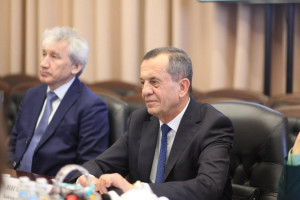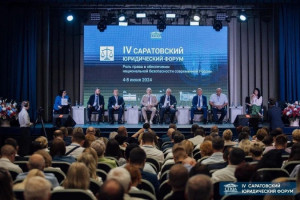MPs Discuss Presidential Institutions in CIS Countries
23 May 2024
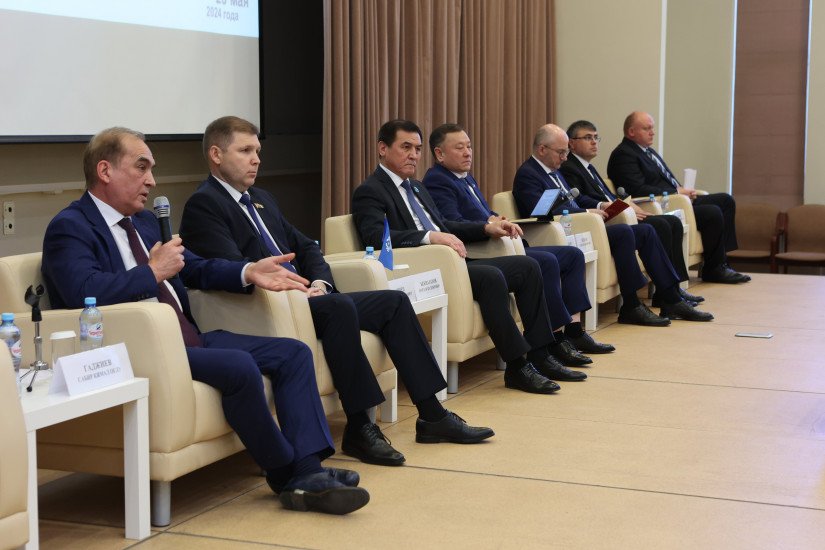
A panel discussion was held in St. Petersburg as part of the international research and practice conference “The Institution of Presidential Power in CIS Countries.” MPs, representatives of central election commissions and experts from CIS countries discussed the transformation of the presidential institution in the region’s republics, the peculiarities of organizing presidential elections and monitoring them and the powers of presidents in different countries.
The event was organized by the International Institute for Monitoring Democracy Development, Parliamentarianism and Suffrage Protection of Citizens of IPA CIS Member Nations (IPA CIS IIMDD) and partner universities of the IPA CIS Secretariat.
In the welcoming speech Secretary General of the IPA CIS Council Dmitriy Kobitskiy noted that electoral processes gradually had strengthened the institution of presidential power, and the electoral sequence had made the legitimization process planned and transparent. As a result, the stability of the political system and citizens’ confidence in the institution of presidential power had increased.
Dmitriy Kobitskiy was awarded a letter of gratitude from Chair of the Central Election Commission of the Russian Federation Ella Pamfilova at the conference for his active co-operation in work related to the prevention of interference in Russia’s election campaigns.
Deputy Head of the IPA CIS Council Secretariat – Director of the International Institute for Monitoring Democracy Development, Parliamentarianism and Suffrage Protection of Citizens of IPA CIS Member Nations (IPA CIS IIMDD) Ivan Mushket emphasized that citizens of CIS countries, by voting in presidential elections, had expressed trust in both the institution of presidential power and the leaders of their countries.
Chair of the Central Election Commission of the Republic of Uzbekistan, Chair of the CIS Advisory Board of the Heads of Election Administration Authorities Zayniddin Nizamkhodzhaev noted the fruitfulness of the discussion for its participants.
Experts from the CIS countries presented their views on the presidential power institution as the basis for political society consolidation.
The event continued with a discussion on “Presidential and Parliamentary Branches of Power: Cooperation and Interaction in CIS Countries”, with the participation of representatives from the parliaments of the CIS countries.
In the Republic of Belarus, all changes in the President’s status went through constitutional-legal reforms, noted Deputy Chair of the IPA CIS Permanent Commission on Legal Issues, Chair of the Standing Commission of the Council of the Republic of the National Assembly of the Republic of Belarus on Legislation and State Administration Sergey Sivets.
Deputy Chair of the IPA CIS Permanent Commission on Legal Issues Nurlan Beknazarov informed about reforms initiated by the President.
Deputy Chair of the Committee of the Jogorku Kenesh of the Kyrgyz Republic for Transport, Communications, Architecture and Construction and Member of the IPA CIS Permanent Commission on Practices of State-Building and Local Government Baktybek Choibekov outlined the new presidential model established in 2021.
Member of the Committee of the Federation Council of the Federal Assembly of the Russian Federation on Constitutional Legislation and State Building Oleg Tsepkin discussed the constitutional changes of 2020.
Chair of the Committee of the Majlisi milli of the Majlisi Oli of the Republic of Tajikistan on Ensuring Constitutional Foundations, Human and Civil Rights and Legality and Member of the IPA CIS Permanent Commission on Legal Issues Dilshod Rakhmon recounted Tajikistan’s post-independence political crisis.
Member of Moldova’s Parliament Commission on State Finance Oversight Vasiliy Bolya discussed the interaction between the President and parliament.


